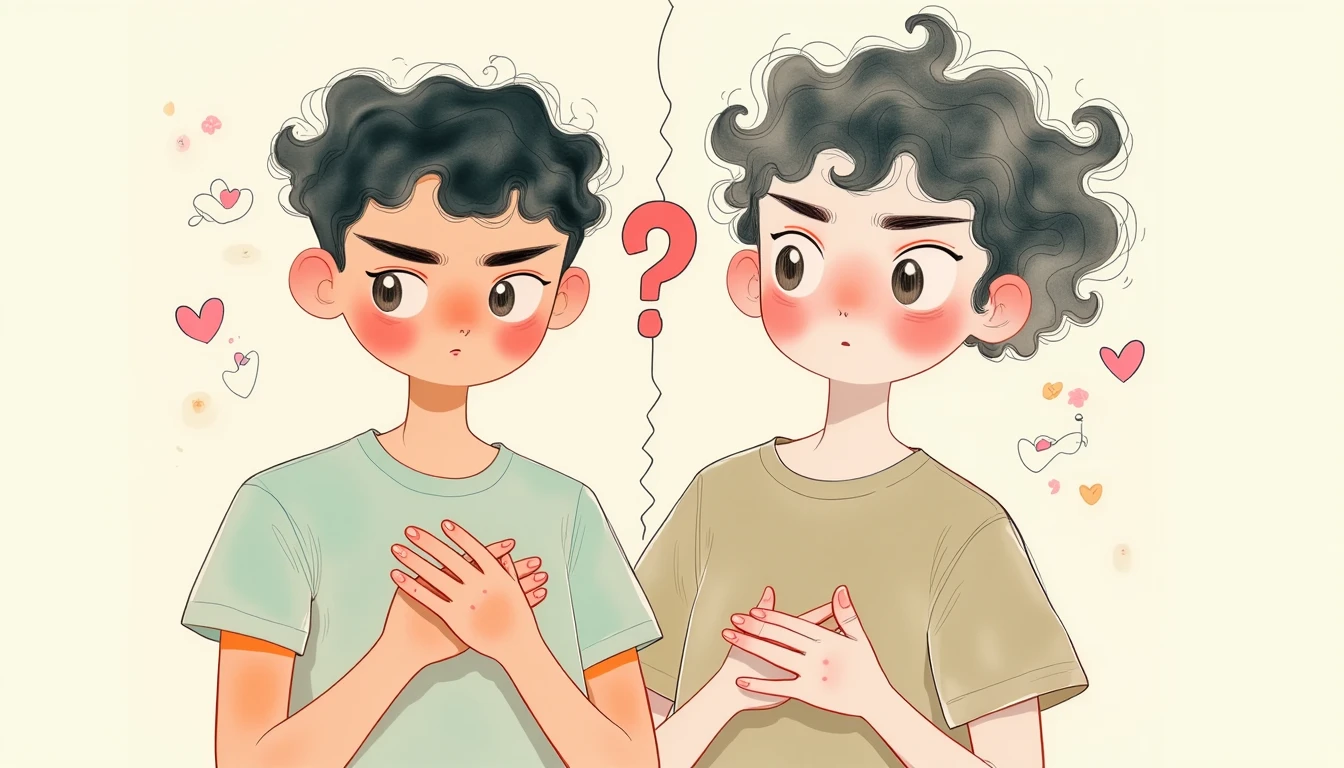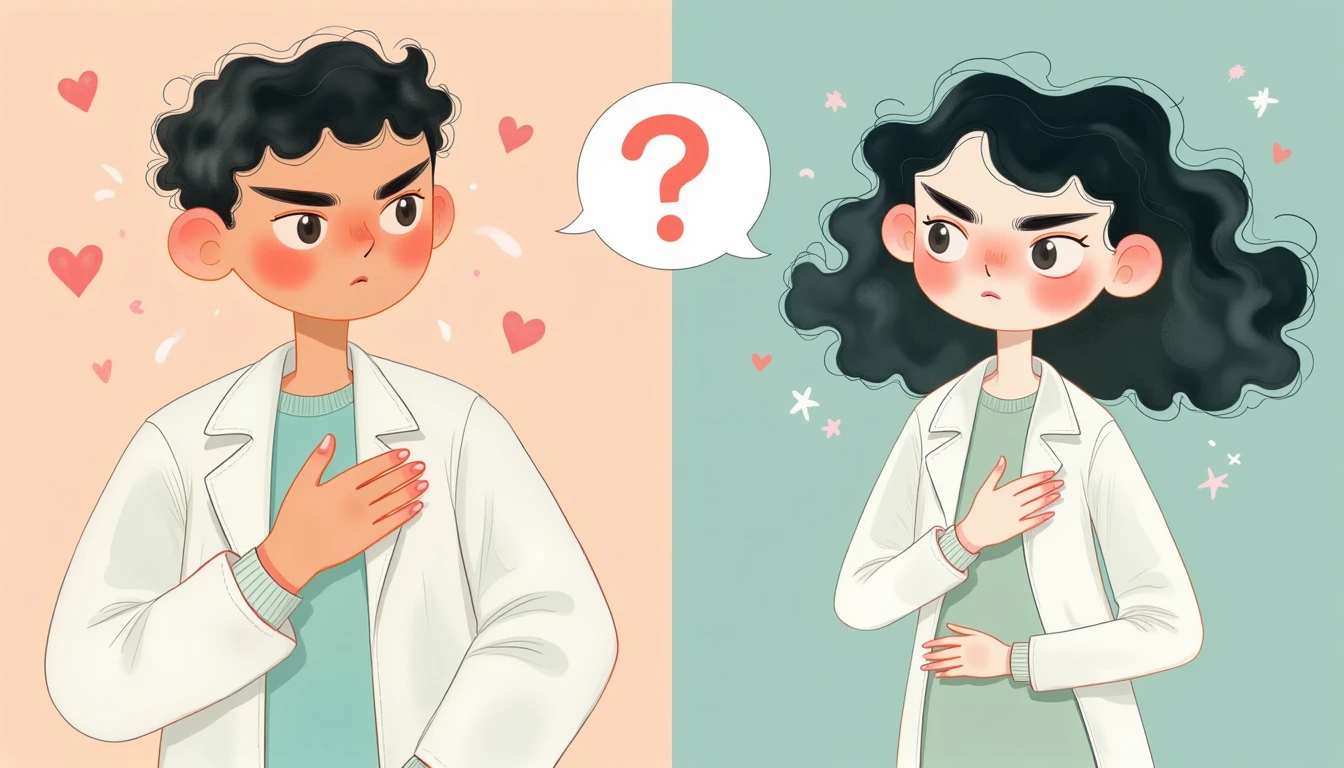Understanding Shortness of Breath: Anxiety or Heart Issues
Have you ever felt that sudden gasp, the tightening in your chest, leaving you to wonder if your breathlessness is a sign of something more serious? You're not alone. Shortness of breath is a common symptom that can arise for various reasons, and distinguishing between anxiety-induced breathlessness and potential heart problems can feel like navigating a maze without a map.
It's an unsettling experience, isn't it? Whether you're sitting in a meeting, out for a walk, or simply relaxing at home, that unexpected wave of breathlessness can catch you off guard. It’s natural to feel a mix of fear and confusion, especially when you're trying to piece together what your body is telling you. The good news is, with a little guidance, you can learn to recognize the subtle clues that differentiate anxiety-related shortness of breath from that stemming from heart issues. So, grab a cup of tea, settle in, and let's explore this together.
The Anatomy of Shortness of Breath
Shortness of breath, medically known as dyspnea, is a sensation of not being able to get enough air. It might feel like an intense hunger for breath, tightness in your chest, or simply a sense of breathing discomfort. But what's causing it? Let’s break it down.
Anxiety and Breathlessness
When anxiety strikes, our body goes into "fight or flight" mode. It's an ancient survival mechanism designed to keep us safe from danger. However, in the modern world, our stressors often aren't life-threatening predators but rather deadlines, social situations, or even an unexpected bill. This response can lead to rapid, shallow breathing, known as hyperventilation, which can trigger feelings of breathlessness.
For more on managing anxiety, check out our article on Conquer Social Anxiety With These Simple Tips.
Recognizing Anxiety-Induced Breathlessness
-
Timing and Triggers: Anxiety-related shortness of breath often coincides with stress or emotional distress. Ask yourself if there was a specific event or thought that preceded the breathlessness.
-
Accompanying Symptoms: Anxiety doesn't usually come alone. It might bring along a racing heart, sweating, trembling, or a sense of impending doom. If these companions show up, anxiety could be the culprit.
Heart Problems and Breathlessness
On the other hand, shortness of breath can also signal heart issues. When the heart doesn’t pump efficiently, it struggles to deliver oxygen-rich blood throughout the body, leading to that breathless sensation.
Spotting Heart-Related Breathlessness
-
Physical Activity: If breathlessness occurs during exertion, like walking up stairs or carrying groceries, and improves with rest, it might point towards a cardiac issue.
-
Persistent Symptoms: Unlike anxiety, which can come and go, heart-related breathlessness might persist, worsen over time, or be accompanied by chest pain, dizziness, or swelling in your legs.
Consider learning more about how to maintain heart health with our guide on Prioritizing Rest And Self Care.

Understanding Shortness of Breath: Anxiety or Heart Issues
Listening to Your Body: Key Indicators
Understanding the context and characteristics of your symptoms is crucial. Here, I’ll share some insights and personal experiences that might help you tune into what your body is trying to communicate.
The Role of Emotions
Emotions play a significant part in how we experience breathlessness. I recall a time when an upcoming presentation left me gasping for air. It wasn’t until I paused and recognized my fear of speaking that I understood the source of my breathlessness. Sometimes, simply acknowledging the emotion can lessen its grip.
- Emotional Check-In: Whenever you feel breathless, take a moment to check in with yourself. What are you feeling emotionally? Stress? Fear? Excitement? This self-awareness can be a powerful tool in distinguishing anxiety from other causes.
Explore how Embrace Mindfulness For Better Mental Health can support your emotional well-being.
Monitoring Symptom Patterns
Keeping a symptom diary can be incredibly helpful. Note down when the breathlessness occurs, what you were doing at the time, and any other symptoms you experienced.
- Pattern Recognition: Over time, patterns may emerge that can help you and your healthcare provider identify whether the breathlessness is linked to anxiety, heart issues, or another cause altogether.

Understanding Shortness of Breath: Anxiety or Heart Issues
Seeking Professional Guidance
While self-awareness is essential, it's equally important to consult with a healthcare professional to rule out any serious conditions and to get appropriate care.
When to Seek Help
If you experience persistent or severe shortness of breath, especially if accompanied by chest pain, fainting, or numbness, seek medical attention immediately. These could be signs of a heart attack or other critical conditions.
- Routine Check-Ups: Regular visits to your doctor can help monitor your heart health and address any anxiety-related concerns. They can provide diagnostic tests like an ECG (electrocardiogram) or stress test to evaluate your heart function.
Discussing Symptoms with Your Doctor
Be open and honest about your symptoms. It's okay to feel vulnerable when discussing your health concerns. Remember, your doctor is there to help, not judge.
- Preparing for Your Appointment: Bring your symptom diary and any questions you might have. This information can help your doctor provide a more accurate diagnosis and treatment plan.
Self-Care and Coping Strategies
Regardless of whether your breathlessness is from anxiety or heart issues, adopting healthy lifestyle changes can benefit both your mental and physical well-being.
Mindfulness and Relaxation Techniques
Incorporating mindfulness practices into your routine can help calm your nervous system and reduce anxiety-related breathlessness.
-
Deep Breathing Exercises: Simple techniques like the 4-7-8 breathing method can slow down your breathing and promote relaxation.
-
Mindfulness Meditation: Spending just a few minutes each day focusing on your breath and being present can decrease stress levels and improve emotional resilience.
For more on mindfulness, see our article Embrace Mindfulness For Better Mental Health.
Maintaining Heart Health
Taking steps to support your heart health can be empowering and preventive, reducing the risk of heart-related breathlessness.
-
Regular Exercise: Engage in moderate exercise like walking, swimming, or cycling to keep your heart strong. Always consult your doctor before starting any new exercise regimen.
-
Healthy Eating: A balanced diet rich in fruits, vegetables, and whole grains can do wonders for your heart. Limit processed foods and stay hydrated.

Understanding Shortness of Breath: Anxiety or Heart Issues
Conclusion: Embracing Awareness and Action
Navigating the complexities of shortness of breath can feel daunting, but understanding the nuances between anxiety and heart-related causes can empower you to take control of your health. Remember, you are not alone on this journey. By listening to your body, seeking professional guidance, and implementing self-care strategies, you can find clarity and peace of mind.
Life is a beautiful tapestry of experiences, and while breathlessness may be an unwelcome thread, it can also be a reminder to pause, breathe, and connect with ourselves. Let's continue to support each other in this journey, embracing vulnerability and courage as we navigate our health and well-being.
Here's to breathing a little easier, one breath at a time.
Frequently Asked Questions
Q: Can anxiety cause long-term breathing problems?
A: Anxiety can cause temporary breathing issues due to hyperventilation, but it typically does not lead to long-term respiratory problems. However, chronic anxiety can exacerbate existing respiratory conditions, so it's important to manage anxiety effectively.
Q: How can I tell if my breathlessness is due to anxiety or a heart problem?
A: Consider the context and accompanying symptoms. Anxiety-related breathlessness often arises with stress and is accompanied by symptoms like a racing heart, sweating, or trembling. Heart-related breathlessness may occur with physical activity and might persist with additional symptoms like chest pain or dizziness.
Q: Should I keep a diary of my symptoms, and if so, what should it include?
A: Yes, keeping a symptom diary can be helpful. Include details about when the breathlessness occurs, activities you were engaged in, any emotional states, and other symptoms you may experience. This information can aid your doctor in diagnosing the cause of your symptoms.
Q: What are some immediate ways to alleviate anxiety-induced shortness of breath?
A: Practicing deep breathing exercises, such as the 4-7-8 method, can help. Mindfulness meditation and grounding techniques can also reduce anxiety and improve breathing.
Q: When should I seek medical help for breathlessness?
A: Seek immediate medical attention if you experience breathlessness with chest pain, fainting, or numbness, as these could be signs of a serious condition. For persistent or severe symptoms, consult your healthcare provider for a thorough evaluation.
Are you interested in learning programs and a personal AI companion to talk to? Try out MindLumen AI to improve your mental wellbeing with AI therapy and companionship. You can try it out for free.
Get started with MindLumen


